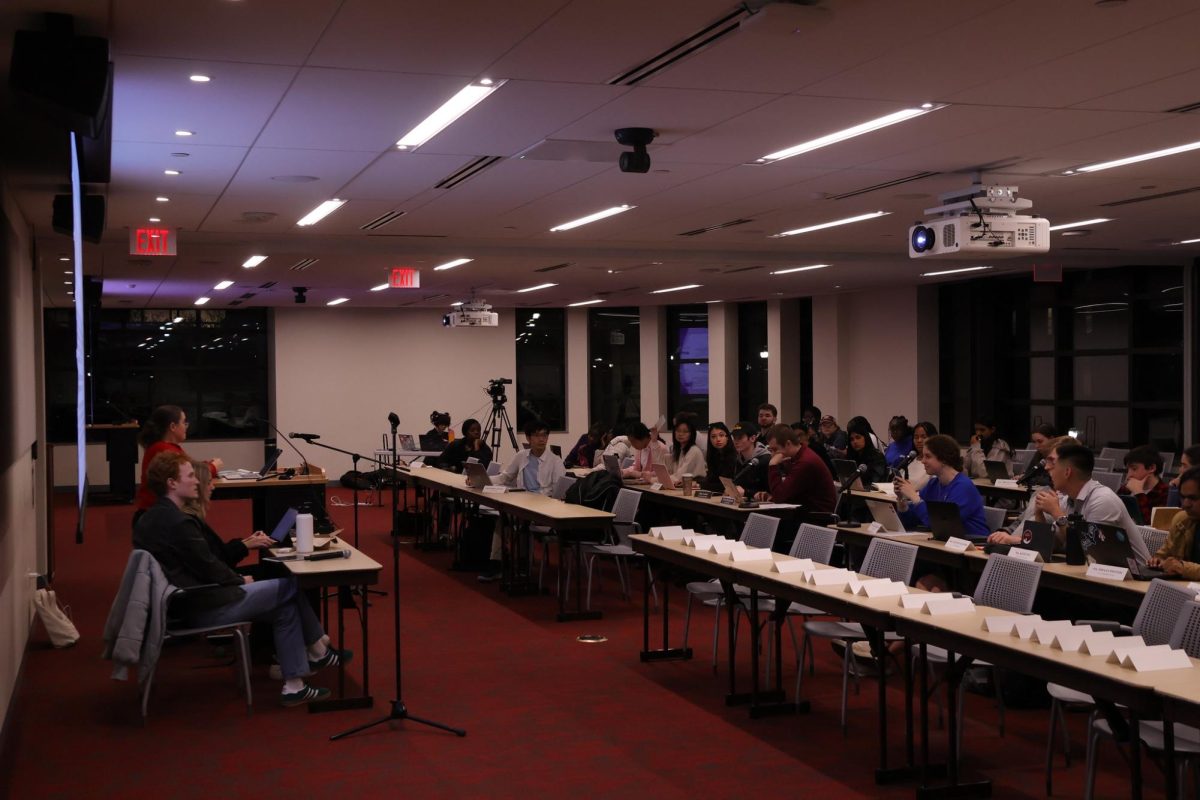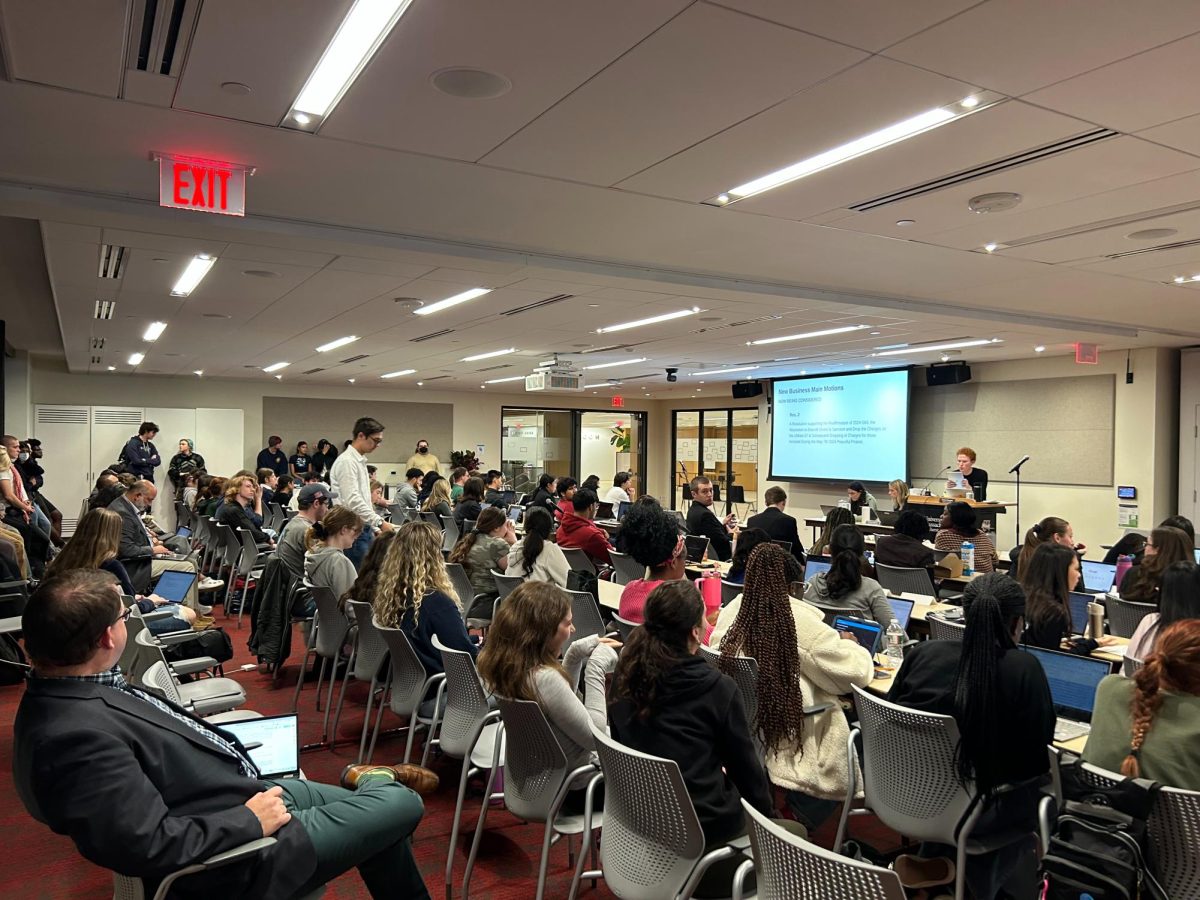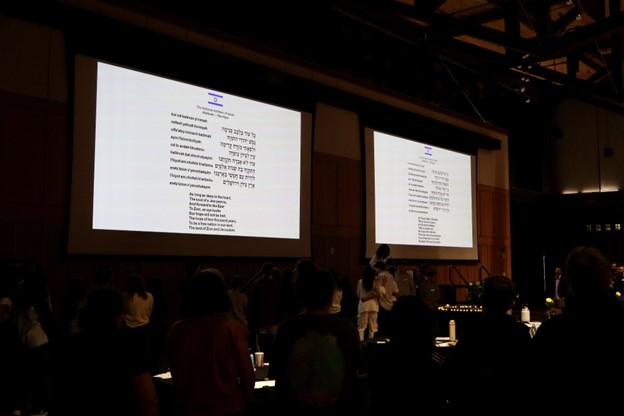
Mona Eltahawy, an award-winning Egyptian-American journalist, shared her vision for a sexual revolution in the Middle East through global feminism during a speech to students Monday in the Amherst Room of the Campus Center.
Eltahawy, who was speaking as a part of the College of Social and Behavioral Science’s “Perspectives on Resistance” speaker series, recently published a book called “Headscarves and Hymens: Why the Middle East Needs a Sexual Revolution.” She spoke to both students and faculty members, and then hosted a question and answer session.
In her book, she encouraged Arab and American women to tackle misogyny in public and private spheres, which was a central talking point Monday. She also highlighted that a sexual revolution must include Muslim women as leaders who tackle what she called the patriarchal trifecta of oppression in the Middle East.
“The street and the home, together with the state, oppress specifically women, and that is what I call the trifecta of misogyny,” she said, referring to conditions in the Middle East.
The first section of the trifecta is the state, which she said was “male dominated” and needs feminists to challenge sexist policies and practices conducted by the government. Eltahawy said that resisting the government would benefit both men and women alike.
The second part of dismantling the trifecta involves women claiming public space on the streets, because the “systematic sexual assaults of women in protests” happens regularly in response to Muslim women speaking out against sexual discrimination and violence.
The third and hardest part to overcome is oppression within the home, where women must claim ownership over their bodies, she said.
“The sexual revolution begins with the declaration ‘I own my body, not the state … not the church and the mosque, and not the home,” she said. By making this self-declaration, a sexual and social revolution can begin in the Middle East, she added.
Eltahawy explained that there are different trifectas of misogyny, and the United States is not spared from the patriarchy.
“In America, the trifecta is race, class, gender,” she said. The intersections of race, class and gender operate to continually oppress marginalized peoples in the U.S., she added.
Additionally, she warned audience members to “pay attention to sexual violence” happening in the U.S., referencing a survey that found “one in four women on campuses across the United States are sexually assaulted.”
Activism through social media has worked well for Eltahawy, especially through her Twitter account, which boasts roughly 223,000 followers.
Eltahawy believes social media is an important outlet for marginalized voices to be amplified, and gives women visibility and a platform they might not have otherwise.
As a result of Eltahawy’s work since the Arab Spring in 2011, UMass journalism professor Shaheen Pasha views global feminism similarly to Eltahawy. Pasha explained that women in the Middle East are highly educated, but need to continue pushing for an equal society.
“A sexual revolution is … about a gender revolution,” Pasha said. “It’s about allowing women who are already doing these amazing things to be able to do it on a wider scale and much more visible scale without having to be worried about criticism or backlash.”
Eltahawy’s book exemplified the need for a sexual revolution, and she strongly believes in the movement.
“Muslim and non-Muslims alike have reduced Muslim women to what’s on our heads and what’s in between our legs,” she said, which continually fuels her fight for the equality of Muslim women. She advocated for the continuation of global feminism, while also saying that Arab women would “complete the revolution.”
Serena McMahon can be reached at [email protected].



















